Different Types of Cat Litter - Which is Best?

As a pet parent to an adorable little kitty, you already know the importance of cat litter. For some cat owners, the process is relatively simple. They buy a litter box and a popular brand of kitty litter, and aside from the potty training, everything seems to fall into place.
For others, there's some trial and error involved. You might begin to notice some interesting odors around your cat's litter box or perhaps your cat may seem to be avoiding it altogether. This might be a sign that it's time to try out a different type of cat litter.
While we definitely celebrate having different choices, with so many options to choose from, knowing which type of litter to try out next can be confusing and an overwhelming process. To give you a hand, we've put together this helpful guide covering different types of cat litter as well as tips for transitioning to a new one.
What are the Different Types of Cat Litter?
Cat litter can be divided by texture, scent, and material.
Non-Clumping Cat Litter
Non-clumping cat litter is the grandfather of commercial cat litter. As the name indicates, this type of cat litter doesn't clump when your cat uses it. Your cat's dropping stays where they are left rather than forming chunks that are easier to scoop out. Despite its inability to clump, this variety of litter still absorbs moisture, which helps to remove odors.
As the litter becomes more saturated, urine may begin to accumulate at the bottom, making it difficult to clean soiled chunks without emptying and cleaning the entire litter box. For some, this may be an incentive to use a non-clumping variety. For those who are used to periodically cleaning out smaller chunks, it may be more of an inconvenience.
Non-clumping cat litter is often made of wood, pine, walnut shell, recycled paper, and silica.
Pros of Non-Clumping Cat Litter:
- Less expensive than clumping varieties
- More choice of materials
- Less dust
- Less daily maintenance
Cons of Non-Clumping Cat Litter:
- Doesn't clump
- Shorter shelf life (and litter box life)
- Entire tray needs to be cleaned more often (once a day)
- Cat waste can be harder to locate
Clumping Cat Litter
Clumping cat litter is the most common commercial cat litter available on the market today, as well as the most popular choice. Most varieties contain a material called bentonite that facilitates clumping as the litter absorbs liquid.
Since urine doesn't pool at the bottom of the litter box, the urine and feces can be quickly scooped out without having to change out the entire box. As the soiled chunks are removed, new, clean litter can be added in its place. This doesn't mean you won't ever need to empty out your litter box, however. Rather, the litter box will have to be emptied once a week, as opposed to daily with non-clumping varieties.
If you're shopping for a kitten, we recommend staying away from clumping varieties to avoid the risk of ingestion. Kittens may try to eat their feces out of curiosity, and ingestion of litter may lead to an intestinal blockage.
Clumping cat litter is often made of materials such as clay, corn, coconut husk, and wheat.
Pros of Clumping Cat Litter:
- The litter clumps after your cat has used the restroom
- Better at absorbing odors
- Easier to clean
- Easier to find cat waste
Cons of Clumping Cat Litter:
- Can be more expensive
- Fewer choice of materials
- More dust and tracking
- Not suitable for kittens
Unscented or "Odorless" Cat Litter
Unscented cat litter is made without additional scent agents. Many varieties still contain odor neutralizing agents such as carbon, baking soda, or even fragrances designed to smell like nothing, which is why you'll see many unscented types branded as "odorless."
Pros of Unscented Cat Litter:
- Traps urine and odors
- Odor neutralizers can mask ammonia smell
- Ideal for cats and owners who are sensitive to smells
Cons of Unscented Cat Litter:
- "Odorless" quality may contribute to a "cat box smell"
- Can require more frequent cleaning, depending on your tolerance for odors
Scented Cat Litter
Scented cat litters have additional scent agent ingredients to emit a more pleasant, intentional smell. Most scents already come mixed in with the cat litter but there are some varieties that offer separate deodorizes to be added in later.
Humans may be more receptive to scented varieties of cat litter, but are cats? Scented options may give off a slight whiff of a smell like lavender to us, but cats have a much more developed sense of smell than humans do. What seems like a light spritz of fragrance to us could be an overpowering inconvenience for your cat.
Pros of Scented Cat Litter:
- Odor-blocking scents
- Keeps litter box fresher between changes
- Can make the litter box easier to hide in the home
Cons of Scented Cat Litter:
- Can be too overpowering for some cats and humans
- Your cat may smell like the litter
How to Switch to a New Cat Litter
Ultimately, the best type of litter for your cat is the one your cat likes best. Once you've made the decision, it's time to begin the transition.
Similar to switching to a new food, your cat will likely adapt just fine if you take the time to transition slowly. Start by adding small amounts of the new cat litter to the existing litter, day by day, until the complete switch has been made.
Sources:
Previous article
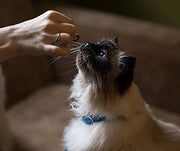
Next article
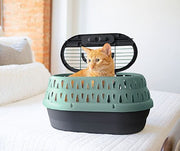
Related posts
View all-
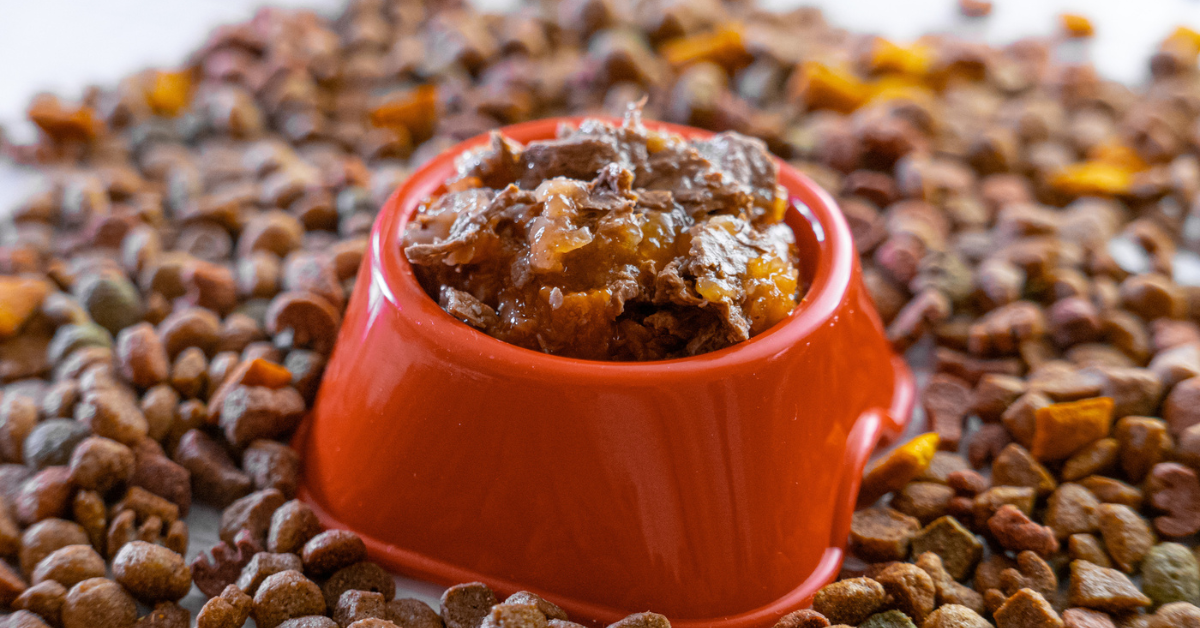
5 Simple Tips to Make Sure Your Cat Drinks Enough Water
Ensuring your cat stays hydrated is important, but it can be challenging since many cats don't drink enough water. Dehydration can lead to kidney disease and other health issues. Fortunately, you can encourage your cat to drink more with a few simple changes. Read Article -
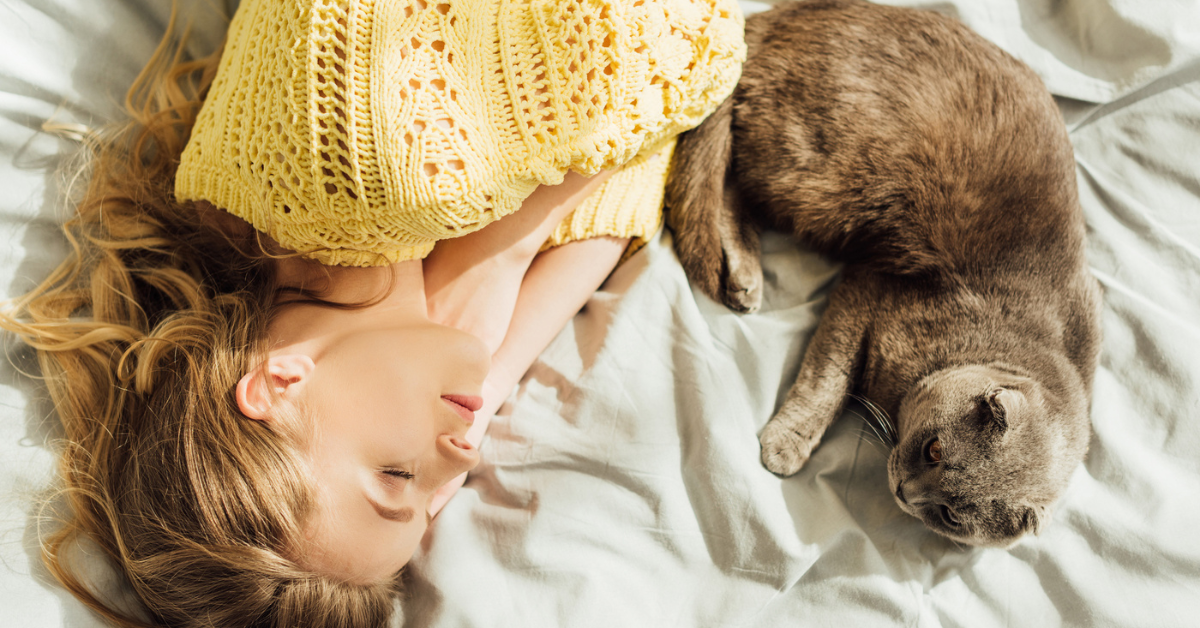
How to Keep Your Cat Busy at Night (So You Can Sleep)
For many cat owners, the quest for a good night's sleep while keeping their feline friends content and engaged can seem like a never-ending battle. Cats, naturally more active at night or early in the morning, often disrupt your sleep schedules with nocturnal activity, whether through playful nature or seeking attention. Read Article -
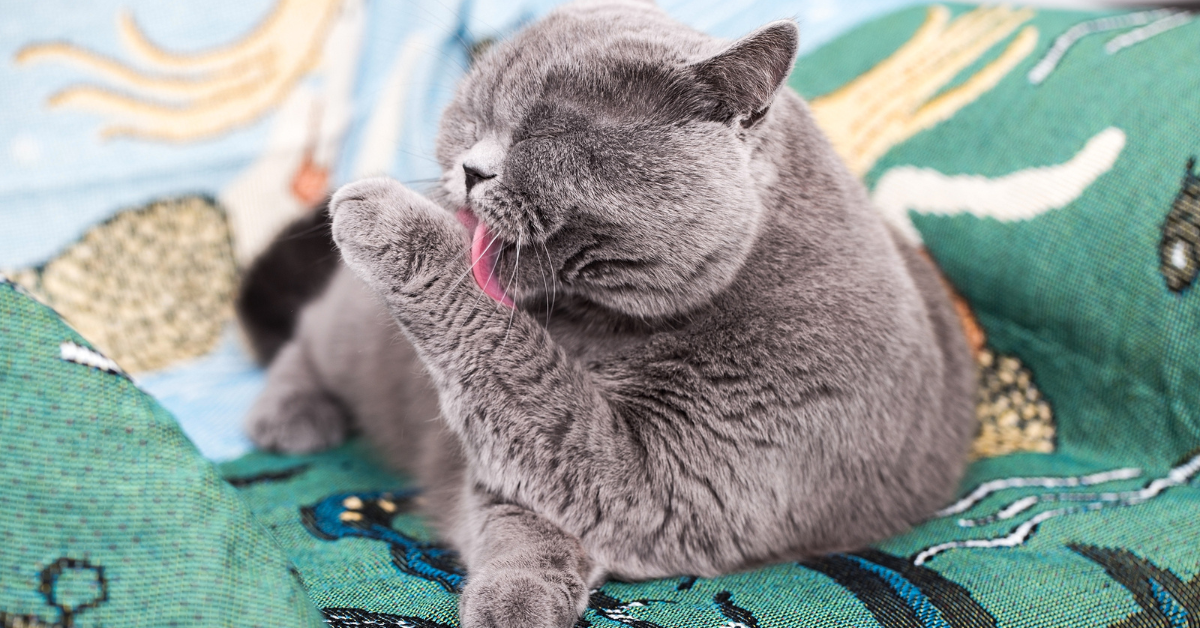
Should You Bathe Your Cat? Everything You Need to Know About Cat Hygiene
When it comes to cat hygiene, a common question among cat owners is, "Should you bathe your cat?" Understanding how to care for felines, especially bathing cats properly, is crucial for maintaining their overall health. Most cats are fastidious groomers, but specific scenarios like long-haired cats getting dirty or skin irritations, might require a bath.
Read Article



